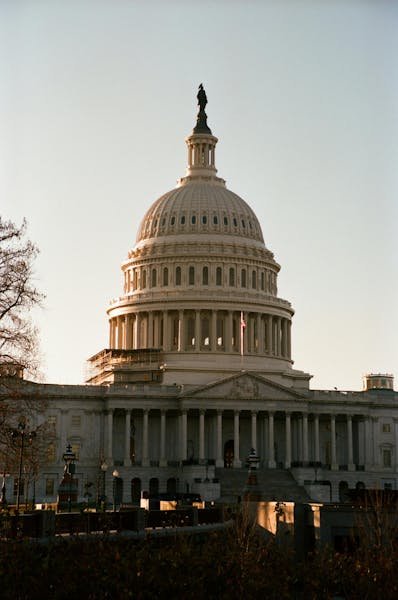Last weekend, I went to Canada on a school trip. During the bus ride, I sat and looked out the window at the sights of South Bend and the greater Michigan area.
I saw corn, cows, farms, and corn. Apart from the surroundings I expected, more items showed up than I expected. Campaign posters, especially the Trump vs. Vance 2024 campaign poster. In fact, during our 363-mile drive, we didn’t see a single house advertising support for the Harris Waltz ticket. The only mention of Harris was in the form of a derogatory message and a cliche Trump bumper sticker, seen alongside a “Talk Tuah” sticker on the podcast. Political presidential campaign ads and promotions are nothing new, but what is new is the seeming abundance of hate and fear-mongering against opponents.
Horrible party loyalty has fundamentally destroyed the American political system. In his Farewell Address, George Washington warned against forming political parties, but here we are now voting by party rather than issue. People no longer vote when the issues they believe in are outside the realm of their party’s association. They close their minds to the idea that views can change and that if one is right, the other must also be wrong.
Since Donald Trump entered the political world, there has been a steady, progressive dismantling of civility and tolerance in politics and America itself. I believe there were three distinct stages of party loyalty in America. The first stage was when Americans voted according to their political beliefs within their party but still put their country above all else. The second stage occurred when voters began to prioritize party loyalty over country. And in the third stage, where we are now, loyalty to both party and state reaches a single number.
Phase 3 is so ridiculous that it sounds crazy to even mention it, but it is slowly increasing in the country. For some, Donald Trump has become something of a savior for the country, a savior figure who will “save” them from the evils of opposing positions. Mr. Trump is so connected to the Republican voting base that he is hijacking the party itself. This loyalty to one politician became so strong that on January 6th, people left their homes, states, and families to revolt against the government.
However, it is critical to note that the American political system itself is implicated in a huge and growing chasm between political aisles. A two-party system doesn’t work and never will. Not everyone’s beliefs fit perfectly into one box, but that’s what our political system encourages voters to do. In a two-party system, politicians can act like entitled children begging for sweets at the store, and they can reap more political benefits from protesting and complaining than from trying to compromise. This system serves to increase domestic decision-making power simply because people are forced to side with or against others, and as these camps become increasingly polarized, the entire political system is equally polarizing.
I understand that not all conservatives wake up every morning and pledge allegiance to Donald Trump. I also understand that there are liberals who worship Kamala Harris as the savior of the nation. Political radicalization and polarization in both political parties is deeply worrying, but it appears to be more prevalent and outspoken within the Republican Party. Donald Trump is no longer just a person, he’s an idea. Donald Trump is a Republican, and anyone who attempts to challenge that idea will be expelled from the Republican Party itself.
America’s political system is broken, but it doesn’t have to be.
The recent controversy between J.D. Vance and Tim Walz points to the possibility of a return to respectful political interaction. The vice presidential debate perfectly paralleled the incendiary nature of the Trump-Harris debate and reflected potential expectations for the future of political interaction between the parties. Following this example of civility, politicians must work together across party lines to promote a new era of mutual respect and civility. For American politics to survive, both elected officials and voters need to work together, not indomitably, but in compromise. American politics should not be built on hate, but on a foundation of unity that helps lead to a better future for all.
Declan Burke
Declan is a surviving biochemistry major from the University of Notre Dame. He is always thinking about how to make the printer work. Please contact dburke7@nd.edu.
The views expressed in this column are those of the author and not necessarily those of the observer.

